
Herbal medicine, while effective at helping to manage stress, can’t do it all. The heart requires periods of relaxation in order to maintain peak performance. If your lifestyle is one that places you continually in stressful situations, you will need to explore the possibility of making small but effective lifestyle changes to better cope with your anxiety. Even a small change in your daily routine to incorporate de-stressing activities and physical exercise can work wonders, giving your heart a chance to catch its metaphorical breath.
The following examples are ways that you can help your heart and cardiovascular system to stay cool—and stay productive.
Deep Breathing
Breathing is such an automatic function that most people do not stop to consider how they breathe. Do you breathe through your chest, or does your belly get involved? It is preferable to breathe more deeply, in a way that reaches and expands the belly; breathing that only involves the chest and shoulder movement is considered to be shallow breathing, which doesn’t oxygenate your body as effectively. Put your hand on your chest and abdomen to see where your breath travels to. Note that it is also advisable to breathe in and out through the nose, not the mouth.
A simple breathing exercise that you can try to help reduce your stress level is to slowly take in a breath while counting to six, hold the breath for a count of six, and then release for a count of six. Doing this while focusing on the sensation of the breath slowing entering and exiting your body has a relaxing effect while ensuring that your body doesn’t suffer from the sorts of shallow breaths common in an anxiety attack.
Meditation
Meditation accompanied by controlled breathing will not only relax the heart, but the mind, glands, nervous system, and all symptoms associated with heightened stress. This practice was once seen as a ritual, requiring massive amounts of discipline. Fortunately, modern meditation is an art that anyone can practice, and it assists problems from insomnia to arrhythmias and all manner of physiological stress-induced symptoms.
A clinical trial in 2009 explored the use of meditation and its effect on the heart, relating to the interrelation of social factors and individual thought and behavior. The participants were heart failure patients numbering 208 individuals. They were first trained for eight weeks in meditation and other various coping skills. The group was followed for one year, during which they reported improved heart status, lowered anxiety and depression. Other trials, combining deep breathing with meditation, resulted in consistent lower blood pressure and decreased heart rate. With the addition of yoga, their benefits also included the reduction of their body mass index (BMI) and improved endothelial function in patients with coronary heart disease.
Yoga
Yoga is an ancient practice which has a notable positive effect on the heart. Yoga encompasses many features that provide balance and relaxation, including meditation. It is looked upon as an art that unites the body, mind and spirit.
Hatha yoga is best suited to relaxation purposes for relieving stress and tightened muscles. A study involving both patients with cardiovascular disease and those without followed a six week program where participants combined meditation with yoga for 90 minutes, three times a week. The results were consistent with other similar studies, showing improved endothelial cell function and a decrease in blood pressure as well as resting heart rate and BMI.
In general, long-term yoga practice results in lowered inflammation markers and sugar regulation/insulin balance improvements, and as such is recognized as a form of exercise that benefits cardiovascular health even as it assists to bring about balance throughout the whole body.
Exercise
Exercise helps to keep the body and mind on an even keel. As has often been said, “Legs pump the heart.” All communication pathways are improved through appropriate exercise geared towards one’s athletic ability. Our bodies need to move and bend; even our bowels require this sort of stimulus! Psychological, neurological and physiological functions all come together with more ease when our bodies are physically active.
In the beginning of adopting an exercise program, many people shy away from starting a routine due to the pain that often follows in the early stages. Whether one realizes it or not, the body wants and needs to exercise. By simply applying restraint and not becoming overzealous, giving your body a chance to catch up with your goals, you can avoid most of the discomfort associated with working joints and muscle damage. The mantra of “no pain, no gain” is one that need not—and should not—be practiced as we enter our later years, especially when burdened with existing health concerns.
As we get older, the hope is that we become smarter and realize the sports that we once enjoyed in our youth will not be appropriate to turn a healing crisis around. Because we are more vulnerable to knee, joint, ankle, and shoulder injuries as we age, it becomes critical to consider routines that involve relaxation as well as toning. Besides those that have been mentioned, consider tai chi, walking, swimming, stretching routines, light resistant weights, and lighter stationary equipment. These will provide support while not encouraging over exertion.
High blood pressure, heart arrhythmia, obesity, eating disorders, stomach and intestinal problems, insomnia, angry outbursts, difficulty coping, overindulgence in sugar, alcohol or drug abuse—these are the symptoms of an overly stressful lifestyle, to name just a few. Stress permeates all aspects of our life, and it can sometimes feel like there is no escape. A cardiovascular illness caused by too much stress is itself a stressor, creating potential for a vicious cycle.
So, stop.
Take a moment, and relax. Get the help you need, get the support your body needs, and only then consider your next move. Use the information you’ve gained and learn to control your stress and your stressors. Remember, anxiety isn’t necessarily a bad thing—it has its purpose in the body—but there’s no point in letting it control you and there’s no reason for it to hold you back.
Copyright © 2018 – All Rights Reserved – Michelle Honda Ph.D.
Announcement
Look for my new forthcoming books “Reverse Heart Disease Naturally” (Jan.31, 2017) “Reverse Inflammation Naturally” (May 31, 2017) “Reverse Thyroid Diseases Naturally” (2018) and “Reverse Alzheimers/Dementia Naturally” (2018)
Where to Purchase:
Reverse Gut Diseases Naturally
Reverse Heart Disease Naturally
Reverse Inflammation Naturally
Hatherleigh Press Page Buy Book RGDN
Local Book Stores in US and Canada
Disclaimer
While close attention was given to the accuracy of information in this article, the author accepts neither responsibility nor liability to any person with respect to injury, damage, loss or any circumstances involving alleged causes directly or indirectly related to the information in this article. The sole purpose is to educate and broaden ones awareness. This information is not meant to replace medical advice or services provided by a health care professional.





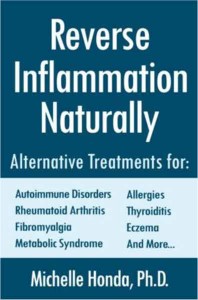
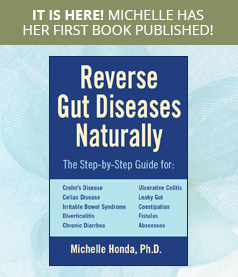

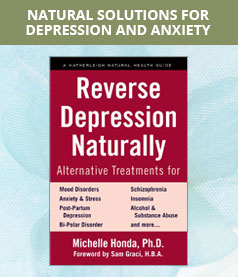
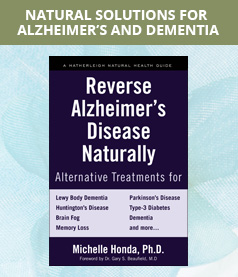
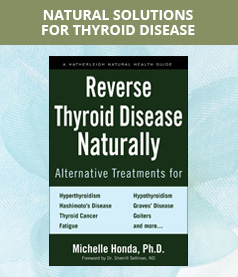

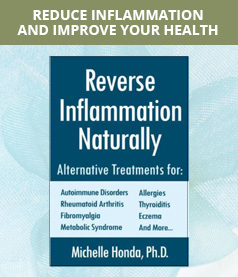
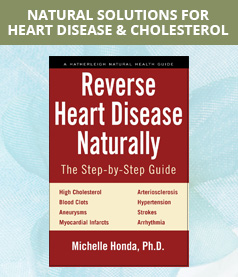
Hi, Insightful post indeed!
As in my opinion, Either you are suffering through mental problem or physical problem. Sleep is the most important thing to deal with pain. We need sleep to think clearly, react quickly and create memories. People who regularly get a good night’s sleep, perform better than sleep deprived. Make your sleep your priority and get a good night’s sleep. It will also helps you reduce stress.
Hi Sam,
Thanks for your input.
Best
Michelle Honda